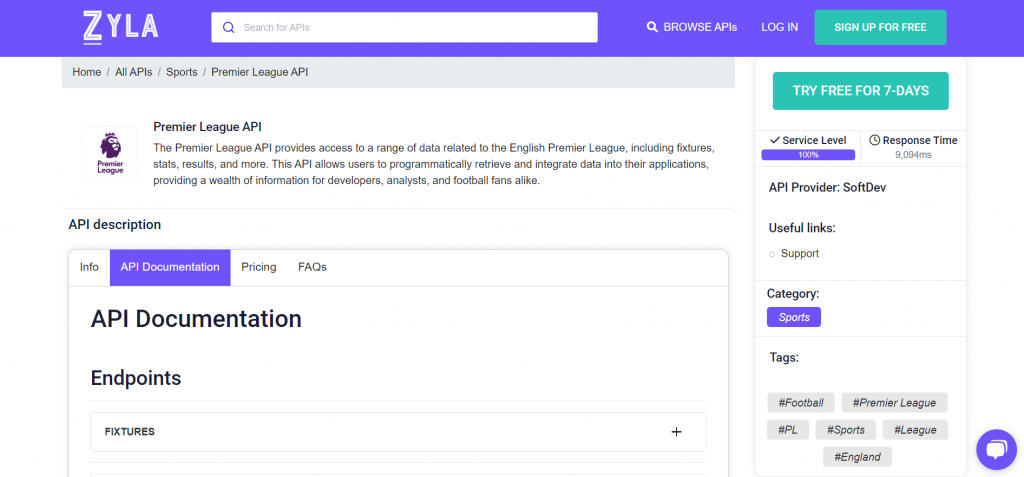Are you looking for a way to analyze football matches in depth? Well, in that case, you will surely need this tool. This is a service specialized in providing Premier League data. For more information, read this post!
The Premier League, officially known as the Barclays Premier League for sponsorship reasons, is a top-tier professional football league in England. It is one of the most popular and competitive football leagues in the world, attracting millions of fans and generating immense interest both domestically and internationally.
The league consists of 20 clubs that compete in a round-robin format, where each club plays against every other club twice, once at home and once away, for a total of 38 matches in a season. The team with the most points at the end of the season is crowned the Premier League champion. The Premier League is known for its fast-paced, high-quality football and is home to some of the world’s most iconic football clubs, including Manchester United, Liverpool, Chelsea, Arsenal, Manchester City, and Tottenham Hotspur, among others. These clubs have a rich history and a massive fan following, both in the UK and around the world.
However, the amount of information that this league generates is overwhelming. For these reasons, to analyze each match in-depth, it is best to use the Premier League API. It is the best service for both soccer enthusiasts and developers. Check all the details below!
Premier League API Is The Best Option To Analyze Matches In Depth!
One of the key benefits of the Premier League API is the real-time and up-to-date nature of the data. As the Premier League season progresses, match results, player statistics, and other data are constantly updated, ensuring that users have access to the latest and most accurate information. This real-time data can be used for various applications, such as live scoreboards, in-game analytics, and real-time insights for sports betting and fantasy sports.
The Premier League API provides an extensive and well-documented set of endpoints that allow users to access a vast array of Premier League data with ease. With just a few lines of code, developers can integrate this API into their applications, websites, or data analysis workflows to unlock the power of Premier League data. These are the endpoints:
- FIXTURES.
- RESULTS.
- TABLES.
- MONTHLY AWARDS.
- PLAYER LIST.
- PLAYER OVERVIEW.
- PLAYER STATS BY SEASON.
- CLUB LIST.
- CLUB OVERVIEW.
- CLUB STATS BY SEASON
- CLUB SQUADS BY SEASON
How To Use The Premier League API?
- Step 1: Create a free account on the Zyla API Hub (API marketplace).
- Step 2: Select the API you want to use, in this case, Premier League API.
- Step 3: Choose one of the available plans and make the payment.
- Step 4: Select the endpoint you want to use and complete the required data, depending on the endpoint you choose.
- Step 5: When you’re done, click the “Run” button and in just a few seconds, you’ll get the Premier League data!
To finish, let’s see an example on how to get an API Response from this API:
curl --location --request GET 'https://zylalabs.com/api/1643/premier+league+api/1296/tables?id=13286&season=all' --header 'Authorization: Bearer YOUR_ACCESS_KEY'{
"0": {
"position": "1",
"logo": "https://resources.premierleague.com/premierleague/badges/25/t43.png",
"clubA": "Manchester City",
"played": "38",
"won": "29",
"drawn": "6",
"lost": "3",
"gf": "99",
"ga": "26",
"gd": "73",
"points": "93",
"next": []
},
"1": {
"position": "2",
"logo": "https://resources.premierleague.com/premierleague/badges/25/t14.png",
"clubA": "Liverpool",
"played": "38",
"won": "28",
"drawn": "8",
"lost": "2",
"gf": "94",
"ga": "26",
"gd": "68",
"points": "92",
"next": []
},
"2": {
In conclusion, the Premier League API offers a powerful and flexible solution for accessing Premier League data.



